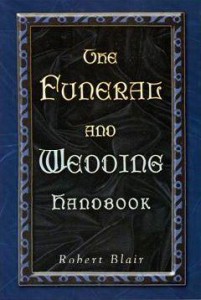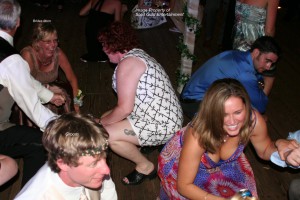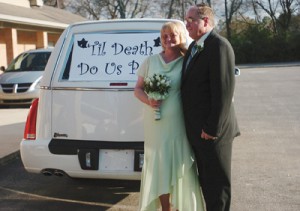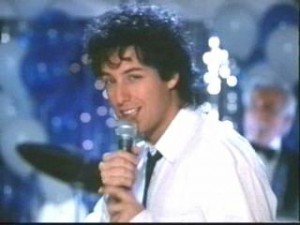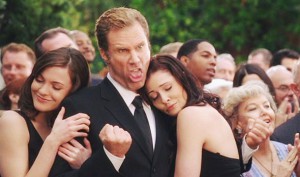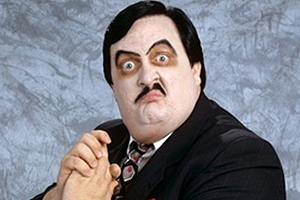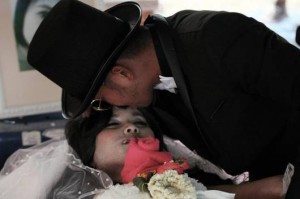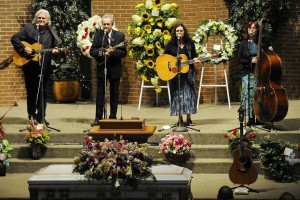“Welcome to the Hotel California
Such a lovely place (Such a lovely place)
Such a lovely face
Plenty of room at the Hotel California
Any time of year (Any time of year)
You can find it here.” — “Hotel California” by Glenn Frey, Don Felder and Don Henley, 1976 (“Record of the Year”)
 David Bowie! Scott Weiland! Glenn Frey! Lemmy Kilmister! Paul Kantner! Dale Griffin (from Mott the Hoople)! What a couple of weeks this has been! It seems as if all of the Rock stars of our youth are dying all of a sudden. I did not know a single one of them, but it’s been a tough time for me nonetheless! I’m living proof of what is commonly called mass grief. Music is such a big part of my life and when someone like David Bowie dies, a man whose art has influenced or been the anthem to so many parts of my life, I truly feel the pain of loss. It’s a deeply personal feeling, even though I never met the man. I know that I’m not alone, that I share my pain with millions of other fans.
David Bowie! Scott Weiland! Glenn Frey! Lemmy Kilmister! Paul Kantner! Dale Griffin (from Mott the Hoople)! What a couple of weeks this has been! It seems as if all of the Rock stars of our youth are dying all of a sudden. I did not know a single one of them, but it’s been a tough time for me nonetheless! I’m living proof of what is commonly called mass grief. Music is such a big part of my life and when someone like David Bowie dies, a man whose art has influenced or been the anthem to so many parts of my life, I truly feel the pain of loss. It’s a deeply personal feeling, even though I never met the man. I know that I’m not alone, that I share my pain with millions of other fans.
What is mass grief?
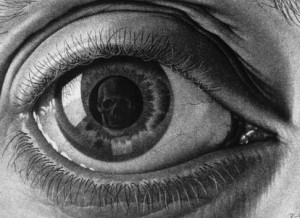
Mass grief is not a new phenomenon. Which of us raised in the 1960s cannot tell you exactly where we were and what we were doing when President Kennedy was shot, or more recently, when Princess Diana was killed? Though we’d never met these people, they still had a big impact on our lives and how we viewed the world. While more than 2,000 Americans die on an average day, it is these larger-than-life musicians, actors, politicians and celebrities that tug at our hearts.
So intense was the grief following Princess Diana’s death that the phenomenon of mass grief has taken the moniker, the “Diana Syndrome.” These feelings of grief, sometimes also called “mourning sickness,” are very real and very common. In our 24/7 mass media news society, it’s easy to feel like we know celebrities personally since we see and read about their daily activities. Sometimes, we know more about these celebrities than we do members of our own extended family. It is no wonder that we mourn their passing?
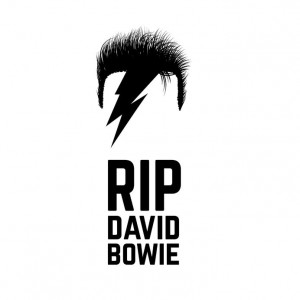 Another aspect of mass grief is that it brings to mind our own mortality. If a larger-than-life person like David Bowie or Princess Diana can die, we realize it could happen to us, too. While we all understand that death is inevitable, most people prefer to push that fact well away from their daily thoughts. A celebrity death takes that basic part of life out of the closet and forces us to examine it a little too closely. In addition, while those closest to the celebrity can witness that person’s decline and start preparing for their death, fans are often caught unaware. The celebrity’s death is often the first indication that fans have that the person was even ill. That was the case with all of the deaths these past few weeks.
Another aspect of mass grief is that it brings to mind our own mortality. If a larger-than-life person like David Bowie or Princess Diana can die, we realize it could happen to us, too. While we all understand that death is inevitable, most people prefer to push that fact well away from their daily thoughts. A celebrity death takes that basic part of life out of the closet and forces us to examine it a little too closely. In addition, while those closest to the celebrity can witness that person’s decline and start preparing for their death, fans are often caught unaware. The celebrity’s death is often the first indication that fans have that the person was even ill. That was the case with all of the deaths these past few weeks.
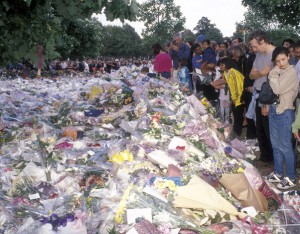 Mass grief manifests itself in a number of ways. Make-shift memorials pop up outside the celebrity’s home or near other locations that were important to that person. People leave flowers, candles, personal notes and other mementoes, the same type of items they would send to a funeral of a friend or family member. The memorial for Princess Diana outside of her home, Kensington Palace, extended for several city blocks and grew taller than a man. Those in London at the time reported that the entire city smelled like a florist shop.
Mass grief manifests itself in a number of ways. Make-shift memorials pop up outside the celebrity’s home or near other locations that were important to that person. People leave flowers, candles, personal notes and other mementoes, the same type of items they would send to a funeral of a friend or family member. The memorial for Princess Diana outside of her home, Kensington Palace, extended for several city blocks and grew taller than a man. Those in London at the time reported that the entire city smelled like a florist shop.
Mass grief also leads people to post memorials on social media sites like Facebook and Twitter. Millions of posts about David Bowie’s passing and his life started appearing within minutes of the news of his death.
There’s nothing to be ashamed of if you’re feeling grief over the passing of someone you’ve never met, such as a musician or movie star. Everyone experiences grief in a unique way. According to David Kaplan, chief professional officer of the American Counseling Association, “there’s no one ‘right’ way to grieve.” Just because you’re mourning a person whom you’ve never met doesn’t make those feelings any less valid. Kaplan goes on to explain that people “have a tendency to compartmentalize grief and say that we should grieve a certain way depending on the person. But grief is grief and people act in very individual ways.” In many ways, the term “mass grief” is a misnomer. This type of grief can be as poignant, as personal, as individual and as deeply-seeded as any other type of grief.
As for the naysayers, grief experts, including Kaplan, advise ignoring them. For some reason, people who would never think of going to a funeral and belittling the people attending the ceremony for their expressions of grief think nothing of leaving disparaging comments on grieving social media posts about the death of a public figure.
Mass grief also often contains a feeling of loss of control. After all, if David Bowie or Princess Diana or John Lennon was susceptible to cancer, to an auto accident, to random violence…the logic goes, so are we. Not a comfortable thought for most of us.
Why are the deaths of musicians so poignant?

Music provides the backdrop for our lives. Hear a certain song and you’re instantly taken back to the time when you first heard it. Hear the song that was playing when you first met your spouse or attended your first prom or sang your first lullaby to your child and you relive the emotions of that earlier, special time. Popular music has a way of finding its way into our souls. Consider the soundtracks to popular movies and the emotions they evoke. Music changes the way we feel about ourselves, the way we view our relationships with others and even our opinions. The lyrics of talented songwriters, such as Frey and Bowie, help to articulate our feelings when we, less talented mortals, are unable to. How many times have you felt that a song was written with your specific life situation in mind? Such experiences create a deep personal bond with the songwriter and musician. Is it any wonder that we mourn?
When a musician dies, we not only lose the person, but we feel the loss of songs that will never be written, albums that will never be released and concerts that we’ll never be able to attend. That body of work we previously saw extending for years and years in the future is suddenly finite. To realize that we’ve already heard all of the songs that a favorite artist will produce is reason alone to grieve.
Saying goodbye to fans
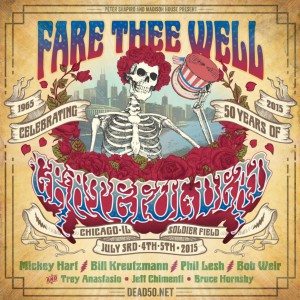 Some artists recognize the impact their music has had on fans and, when they know they are dying, plan for that final farewell. David Bowie knew his time was limited. He also understood how our society diminishes the dying. Instead of succumbing to that standard, he kept his illness private and worked on leaving a final, parting set of tracks as a goodbye to his fans and, perhaps, to help further the discussion about end-of-life choices. That he, at such a deeply personal time, would be thinking of his fans shows that, at least for Bowie, that the relationship between artist and listener is not just a one-way street.
Some artists recognize the impact their music has had on fans and, when they know they are dying, plan for that final farewell. David Bowie knew his time was limited. He also understood how our society diminishes the dying. Instead of succumbing to that standard, he kept his illness private and worked on leaving a final, parting set of tracks as a goodbye to his fans and, perhaps, to help further the discussion about end-of-life choices. That he, at such a deeply personal time, would be thinking of his fans shows that, at least for Bowie, that the relationship between artist and listener is not just a one-way street.
Sometimes public figures are buried with a massive funeral and burial rite. Look at Princess Diana’s service at Westminster Abbey that was attended by hundreds inside the church and thousands just outside. More often, there is no official final rite or that service is (understandably) limited to just family and very close friends. Because of that void, often other performers jump in to put on memorial concerts or other events to help fans work through their grief. For instance, although there is no public funeral for David Bowie, his fellow musicians are hosting a memorial concert at Carnegie Hall on March 31 and April 1. Among the performers slated to appear are Cyndi Lauper, Ann Wilson (of Heart) and Jakob Dylan. Carnegie Hall is a fitting venue for the Bowie tribute as it was one of the stops on Bowie’s first U.S. tour in 1972.
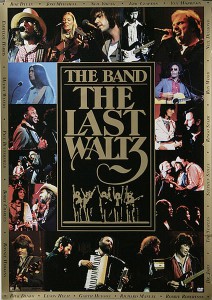
In other cases, artists release a final album as their own tribute or gift to their fans. This is what Mr Bowie did releasing the album, “Blackstar” just three days before his passing. Another good example is Warren Zevon’s final album, “My Ride is Here.” Like funerals, these final works of art are a final gift to survivors, a way to help fans process their grief.
You can even say that when a band breaks up, the emotions felt are similar to a death. How many people are still grieving the breakup of the Beatles or the Grateful Dead? Aware of this, many artists plan a final tour or last big concert to punctuate the end of their era as a band and help fans get over the void left by the members going their separate ways. A good example is when “The Band” played their final “Last Waltz” concerts or the Grateful Dead, always more of a performance band than a studio band, spent their last summer together touring the United States.
Tips for dealing with mass grief
In many ways, dealing with mass grief is no different from dealing with the grief of losing someone who was a close friend or family member.
1. Don’t discount your feelings. As we mentioned above, don’t dismiss your feelings of sadness and grief simply because you never met the person who died. Experts recommend examining the emotions that the death of a celebrity evoke in you.
2. Seek professional help if needed. Grief is a natural process. However, when sadness gets in the way of your day-to-day responsibilities and enjoyment of life, it’s time to seek help…even for mass grief. This is especially true in cases where the celebrity took his or her own life. Studies have shown that a celebrity suicide increases the risk of self-harm in others.
3. Find an outlet for your feelings. Keeping your feelings of grief over a celebrity’s passing to yourself only succeeds in prolonging the intensity of that grief. Better to share your feelings with others, in person, via social media or by calling a grief hotline in your area. Witness the thousands of people who shared their favorite Bowie song via Facebook in the days following his passing. You might even want to organize your own mini-memorial with friends, such as a watch party of a dead actor’s top films or a listening party of your favorite albums from a dead musician.
4. Look for tangible reminders of the celebrity. Another way to process the grief over the death of a celebrity is to seek some tangible reminders of that person’s work. That’s one of the reasons that music, books and memorabilia of a recently-dead celebrity often experience a huge surge in sales. Listening to or reading about the life of the deceased can help you to clarify your feelings about their death.
The bottom line
 Ultimately, grief at a celebrity’s passing is natural, especially the death of someone who has been covered extensively in the news and social media. Although we’ve never met him or her, we understandably feel a kinship towards at least their public personna. Such grief requires processing. Kudos to artists like Bowie who make that process a little easier by leaving a “final act” like “Blackstar.”
Ultimately, grief at a celebrity’s passing is natural, especially the death of someone who has been covered extensively in the news and social media. Although we’ve never met him or her, we understandably feel a kinship towards at least their public personna. Such grief requires processing. Kudos to artists like Bowie who make that process a little easier by leaving a “final act” like “Blackstar.”
Bowie once said, “I think aging (sic) is an extraordinary process whereby you become the person that you always should have been.” …to which we respond, “YES!”

